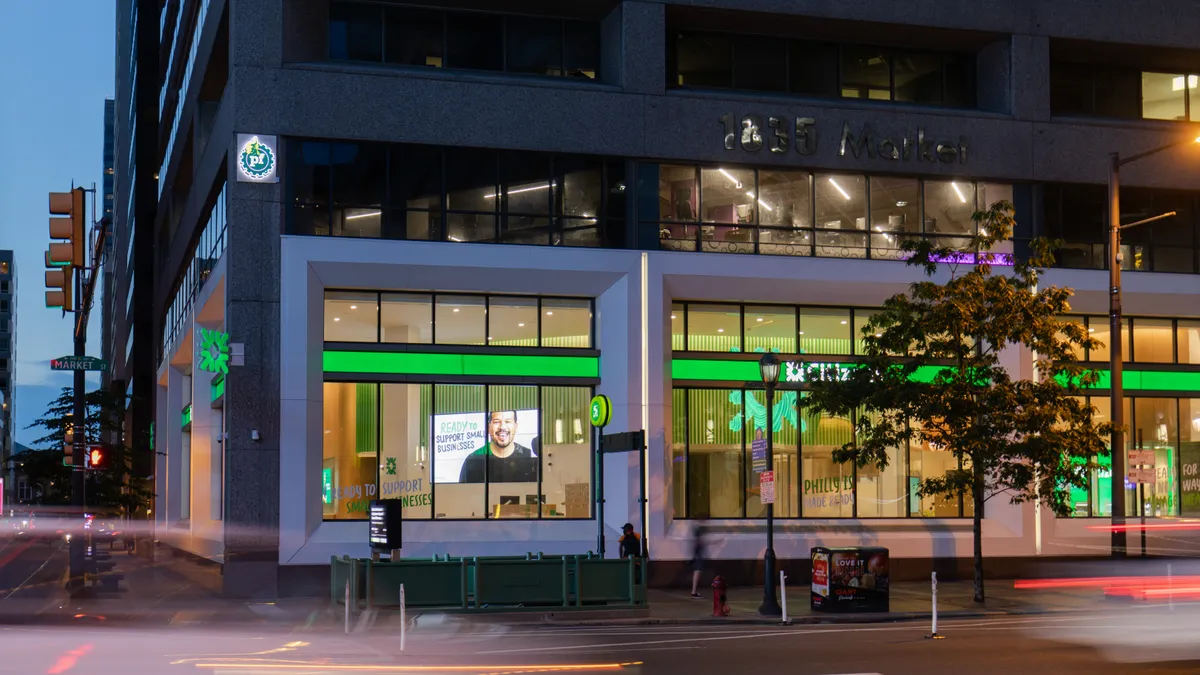Citizens expanded its point-of-sale offerings for small businesses by partnering with embedded pay over time platform Wisetack to offer more flexible financing options for the fintech’s customers.
Citizens announced last week that its consumer installment financing solution, Citizens Pay, will offer pay over time options for home improvement projects through Wisetack’s network of merchants and software as service integrations.
The partnership will initially focus on buy now pay later loans for consumers looking to make critical purchases like home repairs, improvements and maintenance with end-to-end solutions.
“One of the areas that we really felt a need to explore is how do we help small business owners more. I do believe that small business lending either from a point-of-sale perspective or in support of small businesses is … the next consumer need. Small business owners are consumers, as well,” said Christine Roberts, president of Citizens Pay.
“So how can we start to help our small business owners in a way that helps drive their business while also helping consumers?” she added.
Citizens Pay has been an established business platform since 2015, with large technology merchants as clients like Apple, Best Buy, Microsoft and Vivint.
Founded in 2018 and based in San Francisco, Wisetack is an alternative to borrowing on credit cards at a much lower cost, Bobby Tzekin, co-founder and CEO of Wisetack, said.
While the fintech’s network and technology helped to onboard a $222 billion-asset bank to provide financing and lend to consumers, the partnership is “the best of both worlds,” Tzekin noted.
Wisetack’s secured and structured platform has no “cross-pollination between the owner and the consumer information,” Roberts pointed out. It operates within all the appropriate rules and regulations, she added.
Wisetack bridges the gap between borrowers and lenders and offers BNPL loans to consumers directly on the spot with installment payments spread across three months to five years. The fintech’s clients typically use mobile devices, apps or emails to extend their offer to the consumers, Tzekin said.
The fintech offers loans through platforms like Housecall Pro, Thumbtack, Thryv, Jobber, and Signpost, according to its website.
Citizens is the first large bank that Wisetack has partnered with, but it plans to add more to its partner list, Tzekin said. Until now, Wisetack has worked with smaller banks like San Marcos, California-based Hatch Bank, which has around $178 million in assets.
“When it comes to Citizens, they are one of the largest U.S. banks, and they are very forward thinking,” said Tzekin, who headed the product division at Lending Club and, more recently, at Mosaic. “So I think not only is the scale sufficient for us to continue to work with them for a long time as we grow, but I think we're going to end up finding other ways to make the partnership deeper, like launching additional joint products would certainly be something that we'll be evaluating,” he added.
Citizens, a lender in the market for 200 years, will be pushing into the small business space, which has around 33 million small business owners in the country lacking a proper platform to channel their needs, Roberts noted.
“Especially from a home improvement standpoint, given the interest rate environment, as we all see, fewer homes are going on the market, and more people are going to invest within their current home to stay for a while longer,” she pointed out.
Making an offer through a contractor is a great way to reach out to consumers, she added.
A symbiotic relationship
Citizens has a substantial small-business banking program, and the lender is working toward delivering point-of-sale solutions for small businesses as well, Roberts said.
“It has now become apparent to the fintechs that the banks have opportunities to be the backbone of lending and/or financial services. And then [the fintechs] get to be the frontman,” she said.
Though Citizens has a sizeable internal tech department, she noted that their focus is primarily to grow the bank’s technology as an enterprise.
Fintechs have creativity, technology, faster delivery and application programming interfaces – the infrastructures that Citizens lacks, Roberts pointed out.
“That can be a very symbiotic relationship. We bring the capabilities of a massive institution of lending and regulatory control. They bring the creativity of fintech and customer experience and technological connectivity together,” she said.






















